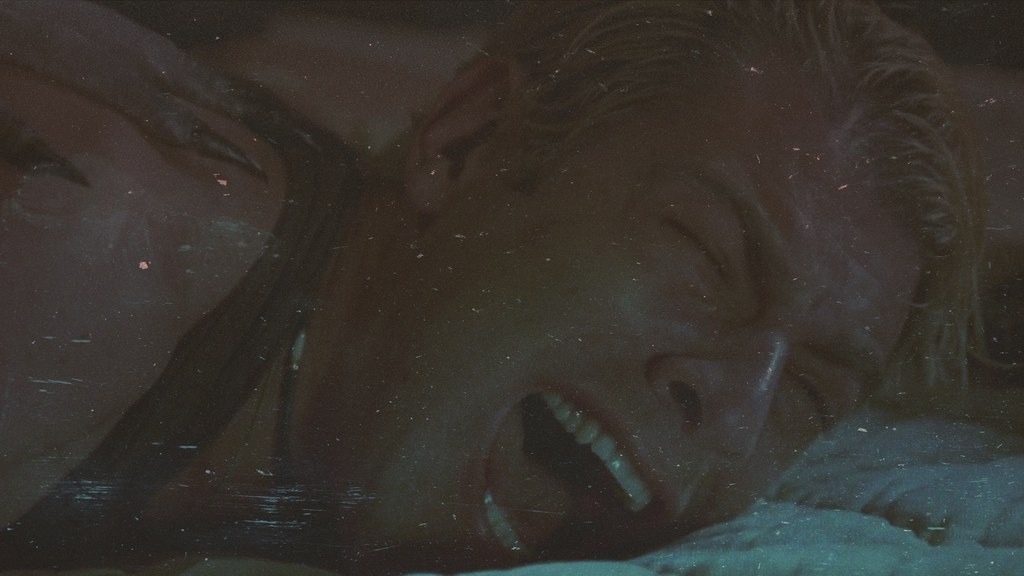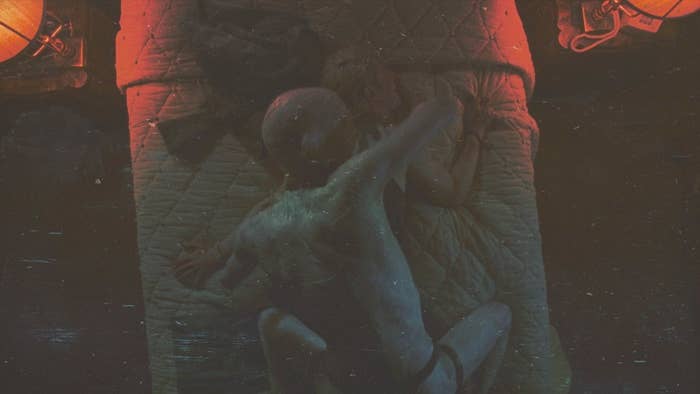
As a journalist working for The Los Angeles Times and Entertainment Weekly in the 90s, it was a prevalent notion that Ryan Murphy had a precocious voice that was indomitable and begged for attention. In the latter portion of the decade, when Steven Spielberg purchased Murphy's script Why Can't I Be Audrey Hepburn? his screenwriting career catapulted, but it would not be until 1999 with the success of his freshman effort, Popular, that the budding writer would secure his place in television. Although the show only lasted two seasons and was cancelled abruptly without a proper series finale, Murphy was already hard at work on his next project – the one that would cement his brand on modern television and ultimately launch him as a staple in pop culture. Coincidentally enough, the next chapter in his career would push the envelope for network television as its glossy and edgy style would serve as a parallel to his real life fascination with shock value over content.

"Tell me what you don't like about yourself," reads the tag line of Murphy's sophomore series, Nip/Tuck, with disconnected bravado. Herein lies the hairline fracture that would eventually begin to show the cracks in Mr. Murphy's television empire. Nip/Tuck, originally based in Miami, Florida, tells the story of two flawed plastic surgeons, both cofounders of McNamara/Troy. Through their own skewed perceptions of reality and anatomy, the doctors dealt with the burdens of everyday life in contrast to the morbidly bizarre world of cosmetic surgery... at least the way Murphy portrayed it. Every week the stakes were raised with preposterous practices and surreal storylines, however, Murphy proved to be adept in engaging with the audience. He created fulfilling entertainment through the absurdity of the show, fully embracing the social commentary of perfection and the macabre obsession with beauty standards. Still, in a case of life imitating art, Murphy proved to have more in common with Sean McNamara and Christian Troy than he primarily intended. Nip/Tuck ceased to focus on the primordial and instead opted to become a terrible show about terrible people. In what seems to be a unanimous opinion, season 3 of the series is where the show waned in quality and became a sordid parody of itself. This enigma is what I like to call "The Ryan Murphy Curse" as his later reincarnations would prove to follow the same trodden pattern.
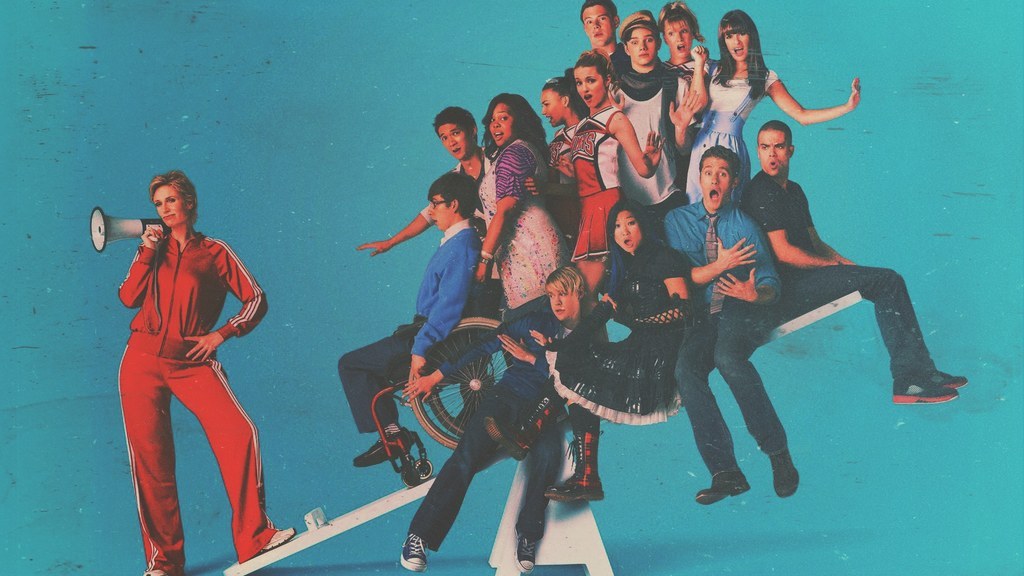
One year before the finale of Nip/Tuck, the next installment of the Murphy franchise was released and met with boisterous success. Glee remains to date as his most successfully profitable contribution yet as the television series not only boasted an ensemble cast, but also created the niche genre of musically comedic television that supported the popular cover singles it spawned. Its release was revolutionary, it was grating, and it was controversial. Hate it or love it, the fans, the merchandise, and the music were inescapable and proved to be a force to be reckoned with as detractors attempted to copy the formula, but ultimately failed to garner the same level of impact.
The core of Glee's support came from its young fan base, as the titular characters in the series were in high school, regardless of the fact that they were actually played by 30 year olds. The age was not the damning factor though, as once again at the end of its third season, when the main cast graduated from William McKinley High School, the show began to deteriorate. In seasons past, Murphy continued to create a resounding voice for the outcasts of a new generation with supporting thematic elements regarding sexual orientation, feminism, race, disabilities, and equality. This fresh take on high school combined with booming music sales proved to be critical with consumers, but once again "The Ryan Murphy Curse" struck and the jokes and social commentaries began to feel less genuine and more strained. What was once perceived to be intellectually creative choices, with the way themes were created and treated, started to become cheap excuses to revel in cruelty and poor taste and it seemed that the show's creator stopped believing.
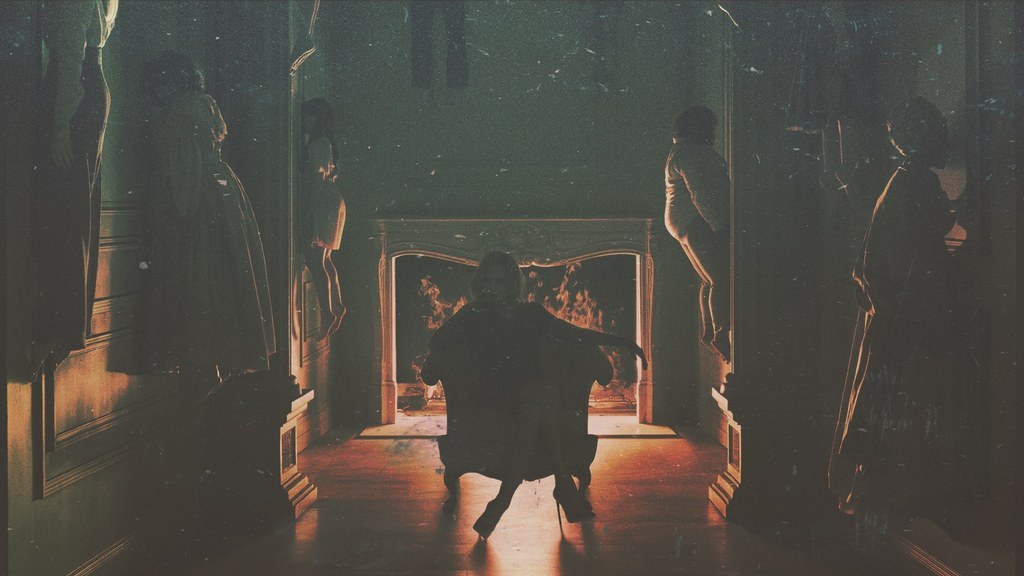
It is no coincidence that Glee careened towards the irrecoverable in the year of 2011 at the end of its third season, when Ryan Murphy was already hard at work and equally distracted by his shiny, new toy, American Horror Story. The anthology series premiered on FX with much anticipation. It was Murphy's departure from the themes of a younger generation and refocused his already successful formula for drama on an adult audience. Murder House was an obscure and solid first installment in the series, which proved to be critically acclaimed as well as a fan favorite. The topics of death, sexuality, and the depravity of humanity were treated eloquently and intelligently. This resonated with viewers and a second season was secured.
At the commencement of Asylum, returning cast members Jessica Lange and Sarah Paulson were motivating factors that earned a strong return of viewership and artistic integrity in the show. In the course of the 13 episodes that ensued, feminism, religion, and corruption were integral observations that the series showcased with dignity and served purposeful in the narrative as a whole. Taking the viewers on a wild ride that proved to be rewarding and constructive. It is in season 3, Coven, that the show began to succumb to its own staggering weight. The foundation began to flail, crumbling to the point of no return, when the cons outweighed the pros. "The Ryan Murphy Curse" returned, much like a dreaded Michael Myers visit every Halloween, to slice and dice the formula that once sustained moral integrity and the ability to justify its morbid nature. Coven started out with a phenomenal bang despite its murky resolution and inability to grasp a clear demographic. The show was initiated with a simple premise: What would happen if witches were placed in a house together and one by one they were dispatched in grisly ways in a Big Brother kind of event? Well, it worked... mostly.
Coven was uproariously wicked and fun for the first half of the season, when the narrative arcs were still fresh and the characters were not mere plot devices, but towards the latter portion of the season the jokes stopped being funny and the petty insults turned to cruel and unusual punishment. Coven attempted tackling social issues like racism, agism, and feminism, but instead of justifying the tasteless dialogue with concrete resolution, or the desecration of the human body and spirit with a higher purpose, all it accomplished was jumping the shark in terms of shock value. Season 3 of the series saw a strong cast led by females, but these female characters were not created by Murphy to empower or inspire women; instead they were utilized to degrade them and amplify the subversive culture in which women are often in competition with one another, whether it be through age, sexuality, or ego. At the end of its 13 episode arc, Coven left many with the impression that women are crazy and will do anything to have power. Murphy most likely made this error subconsciously, or accidentally even, but it only proves that as a man, he does not possess the capacity to write compelling female characters. Taissa Farmiga's character had a killer vagina, which employed absolutely no character development whatsoever, but was an after thought created in response to Emma Roberts' character getting raped. The only utility it posed was for revenge, inflicted upon a male assailant that could have been justified had Murphy's intentions been clear.
We are now five seasons deep into American Horror Story and every single iteration of the saga has depicted a rape scene with gusto and much disregard to its consequence. The season finale of Coven was lifted from Asylum and it's obvious that Murphy and company had no intention to end on a strong note, but opted to copout and reuse their old template. As for Freak Show, the fourth season in the series, I did not watch as the premise seemed bland and uninteresting. There was a reason for this great divide. At this point it was obvious that Murphy was no longer fully committed to American Horror Story as he and his colleagues had cooked up a fresh batch of insanity for 2015.
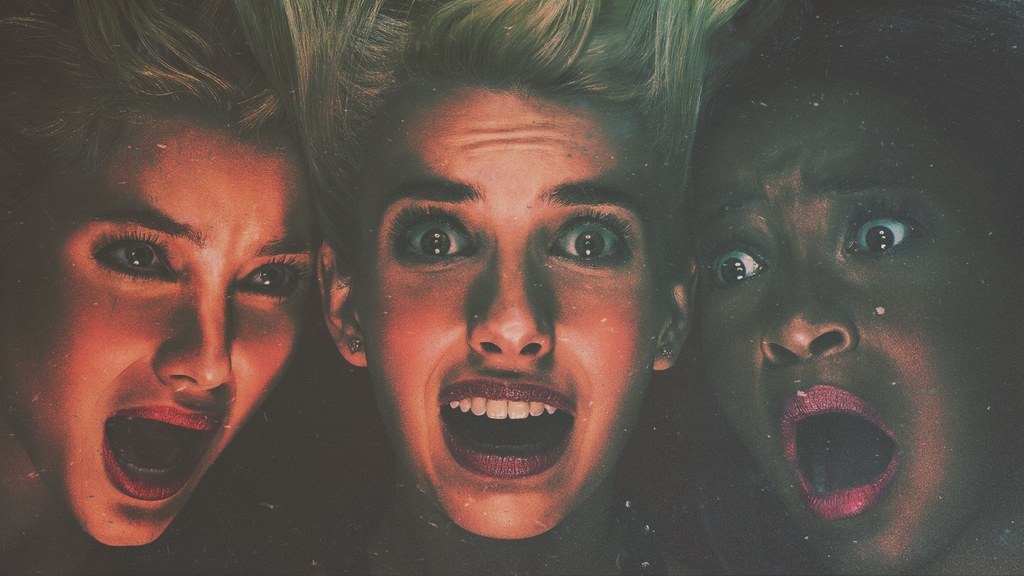
Scream Queens is the offspring between the campiness of Glee and the surrealism of American Horror Story, and if sexual intercourse could be personified between two television series then Ryan Murphy would be the man to make it happen. Although the series only has four episodes to its name, it is the epitome of everything that has gone terribly wrong with every single one Murphy's shows. Is it tasteless? Check. Is it arrogant? Check. Is it ignorant? Check. Is it racist? Check! Is it homophobic? Check!! Is it perverse, uninspired, tired, tried, crass, obnoxious, and moronically cruel? CHECK!!! What with incessant derogatory terms blurted out by the Emma Roberts' Chanel Oberlin character with her crude comments referring to the house maid as a "white mammy," and the misrepresentation of necrophilia in conjunction with anal sex and homosexuality, Scream Queens offers less of a nightmare and instead conjures a colorful representation of one of Murphy's wet dreams.
At this point in the series it is hard to define The Red Devil as the true antagonist, for much of the inhumane behavior between main characters proves to be much more horrifying. Jessica Lange opted not to appear in the fifth season of American Horror Story, and rightfully so, but with veteran actress, and ultimate Scream Queen herself, Jamie Lee Curtis onboard keeping him occupied, Murphy remained unbothered. Sadly, Curtis' role is a pity echo of Chanel Oberlin, dysfunctional and delusional, and the role is mostly wasted with needless exposition and a contrived agist point of view. Regardless of the points against its premise, I still watch it week after week to witness firsthand if any redeeming qualities will emerge, but unlike MTV's equally idiotic Scream, (at least that series stayed true to its source material) Scream Queens is not meant to inspire. It seems as though the trend this year on television is murder, but I would persuade anyone who wants to watch poignantly calculated television to tune into the more superlative How to Get Away With Murder where satire is used appropriately, and not disparagingly as a pretext for crass humor.
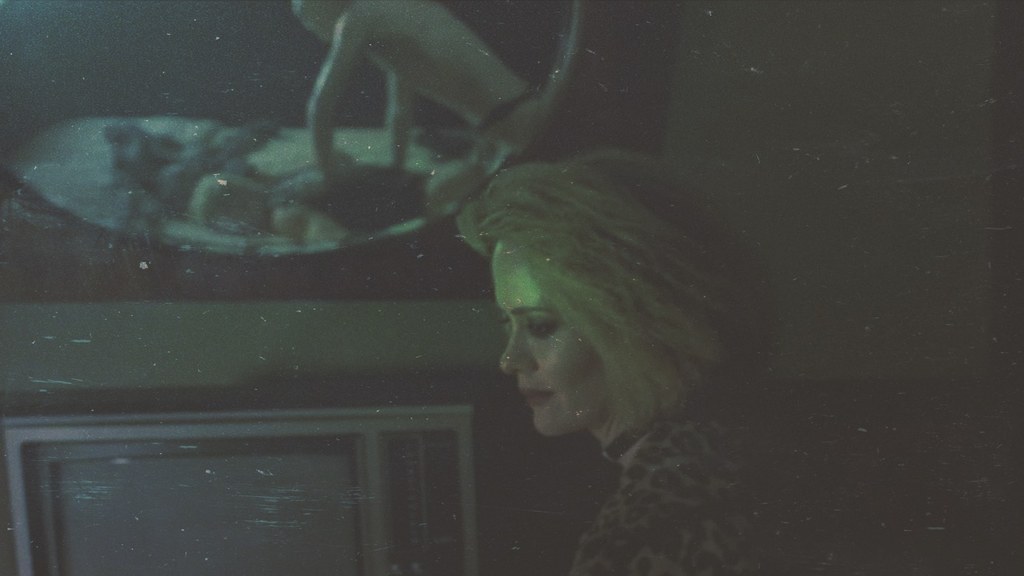
Finally, the nail on the coffin for "The Ryan Murphy Curse" comes full circle in the fifth season of American Horror Story, now subtitled: Hotel. Having worked at the Hilton Los Angeles Airport in Los Angeles, California I can attest to the horrors of hospitality, but the fictional Hotel Cortez in Downtown Los Angeles is anything but a home away from home. Borrowing heavily from the classic cinematic representation of Kubrik's The Shining, this glossy, new entry serves no true purpose but to present Lady Gaga playing Lady Gaga in ArtRave: The Artpop Ball - Halloween Edition, I mean... American Horror Story: Hotel.
The show premiered on October 7, 2015 to a hefty 60 minute episode that appeared to be more in tune with a series of stylized music videos as opposed to the engaging introduction it was supposed to be. It is palpable that this season of American Horror Story will raise the blood, body count, and bare buttocks, and this is understandable as gore and sex have always been detrimental to the aesthetic of the show. Now more than ever these depictions appear out of context and like shlock. Despite its shortcomings, the set design and wardrobe shine through, even in the dimly lit, cavernous and nefarious location.
Unfortunately, this does not make for great television, and those qualities do not redeem the gratuitous rape scene involving Max Greenfield. His unnamed character is a Hollywood junkie with no affinity for decency or functionality, and yet his demise is uncalled for and inconsiderate to say the least. In a scene where he shoots up heroin before hallucinating a demonic beast, dream turns to reality when said creature proceeds to penetrate him voraciously with a spiked, drill-bit-like dildo strap on. Is it titillating? No. But it's not hard not to imagine Ryan Murphy with a raging erection as he wrote this scene. Surely there was going to be influential context, maybe a lesson in morality to be taught, or social commentary to be explored later? No. The scene is never mentioned again, nor does it relate to any of the events that unfold in the premiere. However, it does leave the viewer with the impression of disgust and discomfort, which is not the same as raising thought provoking intrigue and mystery.
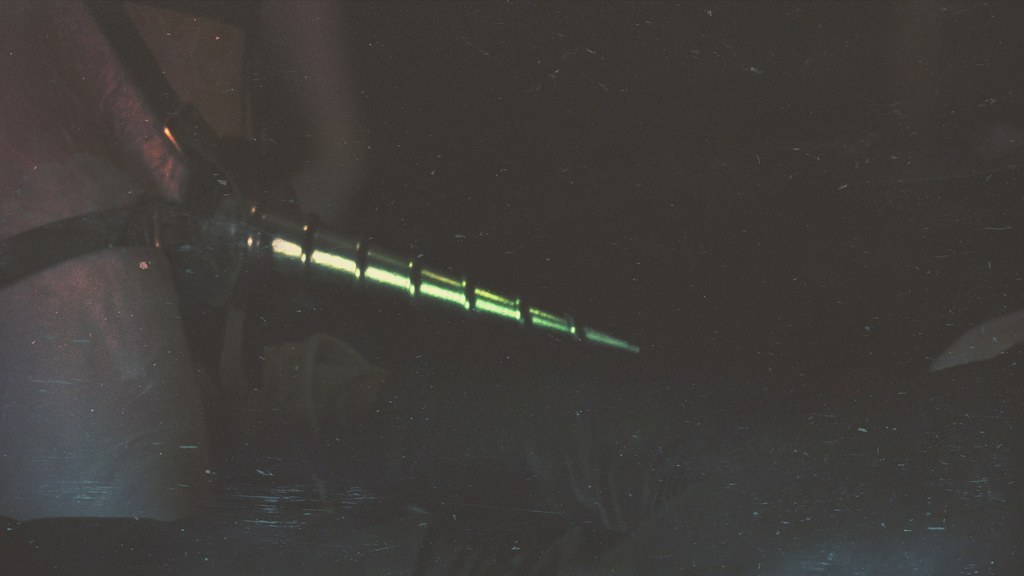
In my opinion, Ryan Murphy has fallen from his pedestal as the voice of modern television. His ideas and contributions were once impactful, inclusive, and retained a vivid notion of morality. Even his most disgusting and oppressive characters, like Sue Sylvester, had wit, charm, and displayed a vulnerability that humanized them. As the years have progressed, Murphy has strayed from creating informative and entertaining television that aims to inspire a future generation to rethink and rework dated principles. His work is now marred with negative stereotypes and sadisticly explicit concepts that hinder and disservice his past efforts. It appears that Murphy has replaced substantial integrity with shock value and poor taste by masking it as satire, but his points are flawed and invalid. In watching his recent shows, Murphy is not using his writing abilities to address social issues and create awareness, but rather he mocks them and deploys vicious jokes that only aim to hurt and belittle. I certainly hope that Mr. Murphy takes a much needed vacation and reevaluates his career as his writing can be entertaining and educative, but in recent years has suffered in substance. He was once poised to be a successful tableau in modern television screenwriting but is now faltering in a fashion that resembles the downfall of his creations.
